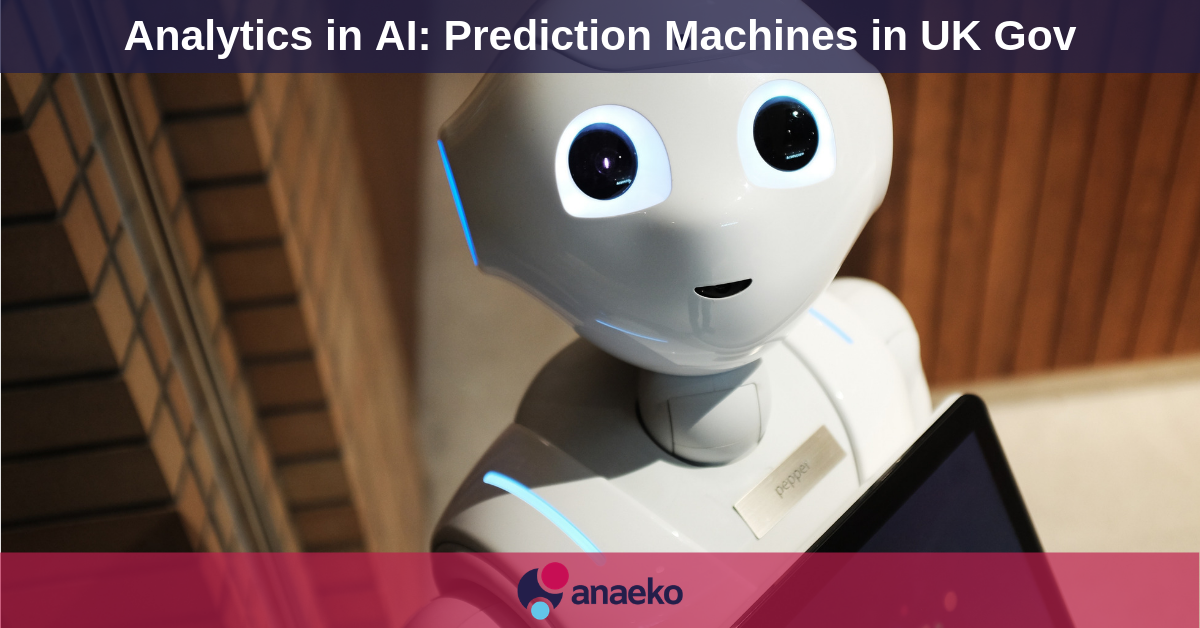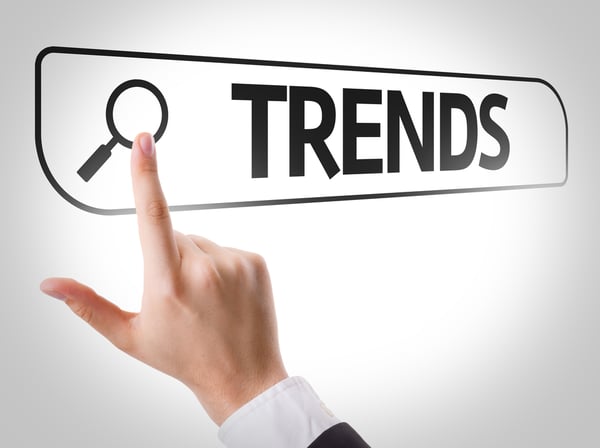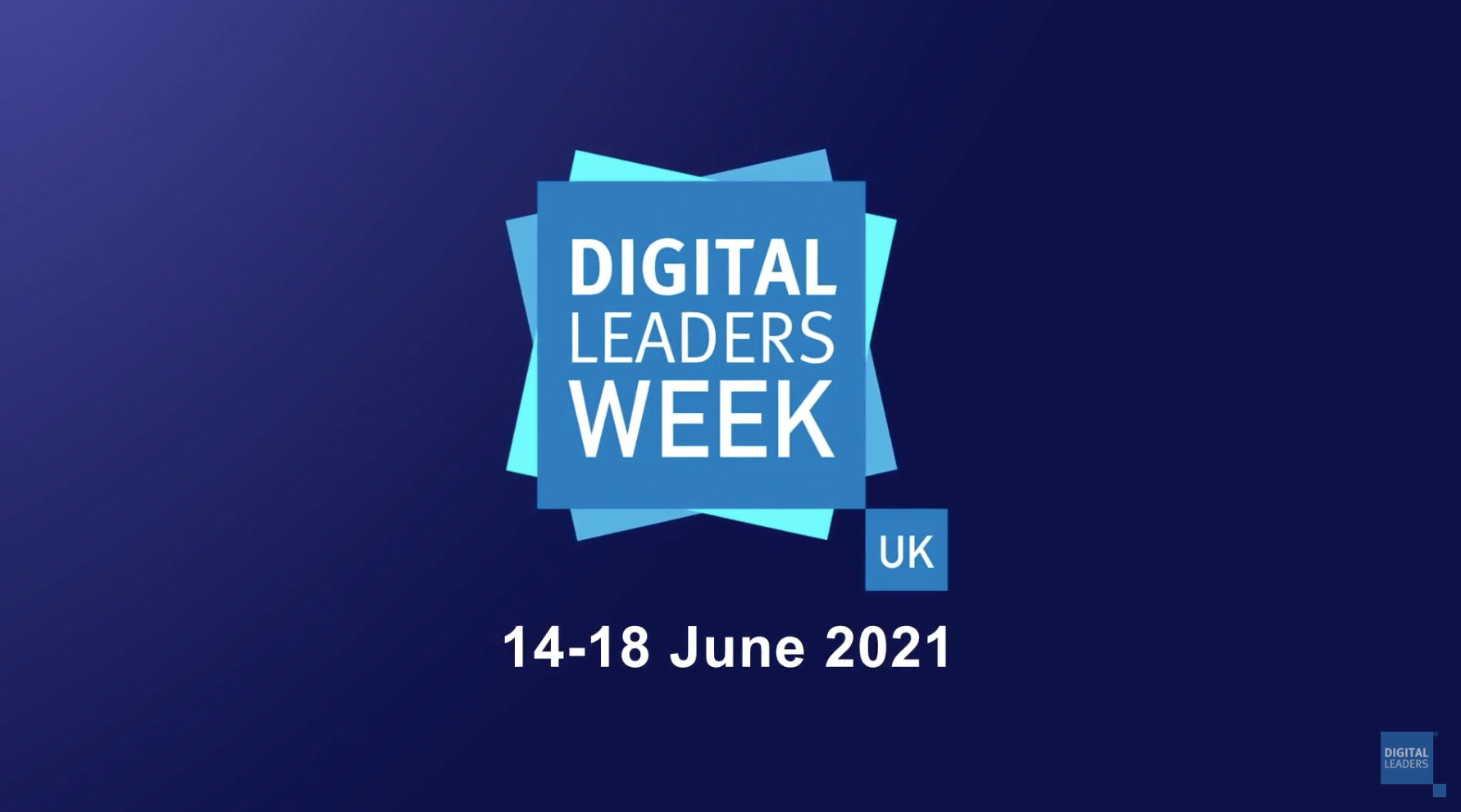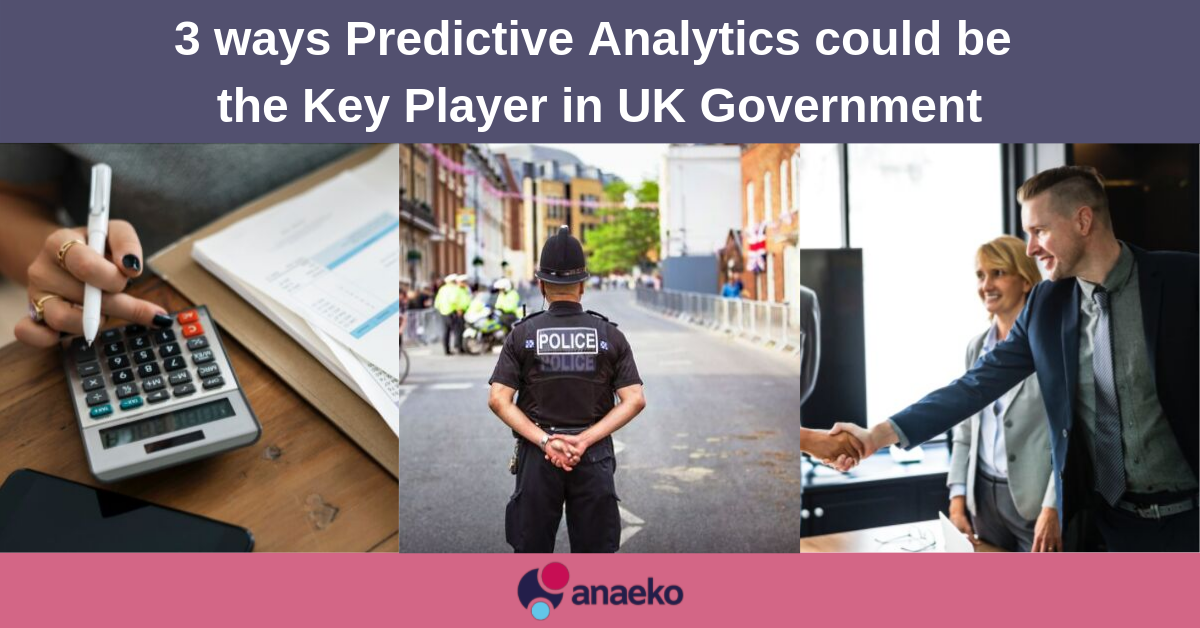
Working within the technology industry there are some buzzwords which come up over and over again, current one being 'Artificial Intelligence'.
Algorithms
Prediction machines use algorithms to predict the likelihood of X. For example, predicting the salary of an individual given information on their demographics, behaviour and cultural trends. By calculating the prediction accuracy of an event happening to a certain person, industry or trend, we gain further insight and can act accordingly. Prediction machines or models have many advantages. Although there is investment required to build these models, there are savings made intervening in a problem before it escalates. Public sector organisations can do this, but only if they can convene and analyse the datasets that might collectively point to cases of highest future risk.

If we take the example of three isolated departments; department for Education, the Police and the Department of Health & Social Care. If each department can collaborate and integrate their data, we would be able to predict various cases like individuals who are at risk of committing crime in the future, individuals who are vulnerable and individuals who are at risk of drug/alcohol abuse etc. By identifying the potential problem before it happens this has a domino effect in future years. The costs of intervening before an event, far outweighs the costs of intervening after the problem.
Predictive Policing

In January 2018, it was announced that Kanagawa, a Japanese prefecture, hoped to introduce predictive policing, when tackling crime before the 2020 Tokyo Olympics. This AI-based system would employ a 'deep learning' algorithm that allows the computer to teach itself by analysing big data. By gathering various data from different departments, they can use metrics on time, places, weather and geographical conditions to predict the likelihood of criminal offences taking place.
Technology Trends

The collection of data is crucial to all things predictive. Most departments are sitting on a pool of data that can facilitate prediction machines and automated processes. From Forbes top 5 technology trends in 2019, three of the five trends will require the utilisation of data to deliver the output.
Predictive Analytics in Healthcare

The healthcare industry produces and gathers a huge amount of data and this data has the potential to be used in predictive analytics modelling to help improve and forecast the demand on healthcare services. There are many ways in which predictive analytics could be used. Some companies are looking at forecasting hospital readmissions and others looking at predicting specific patient illnesses before they become serious.
Predictive analytics in medical imaging is set to have a big impact on cancer care too, says Anant Madabhushi. For pathologists, it will mean using predictive analytics to improve identification of specific things on images.
(Source: HealthTech )
“Usually, we see AI algorithms that can detect a brain haemorrhage or a wrist fracture — a very narrow scope for single-use cases,” said Matthew Lungren, MD, MPH, assistant professor of radiology. “But here we’re talking about 14 different pathologies analyzed simultaneously, and it’s all through one algorithm.” (Source: Stanford Medicine)
If you would like to find out more, book a free session/call with us to explore how AI might impact your organisation.
Read more on Analytics as a Service and our integrated analytics services: Analytics as a Service
Topics: Data Analytics, Public Sector, Government, Machine learning, Predictive analytics, Artificial Intelligence, Analytics as a Service, Analytics Services, Predictive modelling




